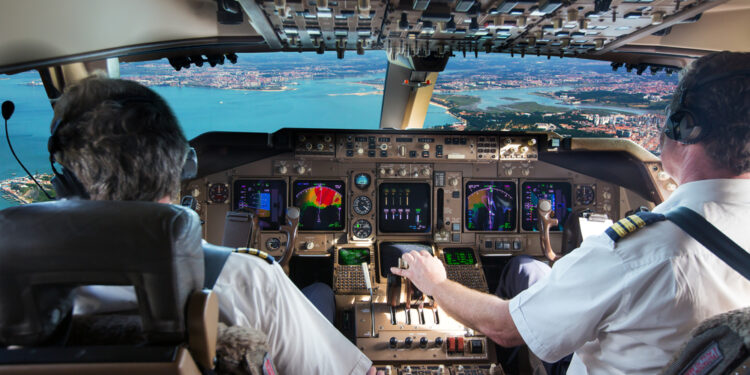Pilots can never eat the same meal as their co-pilots. Aviation professionals are responsible for keeping their crew members alive in an emergency where they may need to make life-or-death decisions. Imagine what would happen if both crew members became incapacitated at the same time especially considering how sudden losses of cabin pressure can sometimes cause pilots to black out.
There are multiple reasons why pilots and co-pilots should not eat the same meal. One is because it could cause a potentially fatal chain reaction when one eats the food intended for their co-pilot. Another reason is that eating the same food could result in various physical symptoms, such as an inability to taste saltiness or sweetness, nausea, projectile vomiting, and heart palpitations.
The pilot and co-pilot should avoid eating the same meal for many reasons. The pilot is responsible for navigating a plane to its destination safely. When a pilot eats a meal, salt particles might fall into their eyes and cause them to be unable to see correctly, thus leading to many problems. Also, If the pilot has eaten a hot meal recently, it will take some time for their body temperature to return to normal.
If the co-pilot is still experiencing higher body temperature because of a recent meal, this could cause control issues, such as lack of concentration and inability to process information. If the pilot and co-pilot eat the same food, they could risk being overcome by airsickness simultaneously, which is not good when you are thousands of feet above ground in an airship.
Although this might seem far-fetched, it has happened before, and only good luck prevented a disaster from occurring. It is a general norm that food eaten by a pilot might need to be cleaned up by the chefs promptly and that it should never end up on the controls.
However, the main reasons why the pilot and co-pilot can never have the same meal are:
1. Risk of food poisoning to the pilot.
A pilot’s job is so vital that if they get food poisoning, it could be a situation where they can’t control the plane or cannot do their duty. If they get food poisoning, they could still try to fly the aircraft but will probably feel very sick and unable to concentrate on flying as safely as possible (especially if it is severe).
2. Risk of food poisoning to the co-pilot.
If the pilot gets food poisoning and cannot control the plane, then a co-pilot must step in and fly the aircraft. However, if that co-pilot eats the same food as the pilot that got food poisoning, it may also risk getting them sick.
In addition, the typical flight is a long haul between two places. The pilot needs to be alert and focused enough for his task of flying the aircraft for hours at a time. He does not want distractions messing around with his mind or disrupting his concentration on flying the plane. The co-pilot may also have his tasks, such as playing with the intercom or organizing the materials they will use aboard the aircraft. He also needs to keep an eye on the time to prepare for a landing or a take-off.
How do airlines solve this problem?
So, the solution is simple. The cabin crew takes required orders from both pilots and the co-pilot separately. And they prepare the meals according to the liking of both of them. The two can even enjoy their meals together as it won’t affect either of their duties on the flight deck.
Bottomline
Co-pilots should avoid eating meals that their counterparts have eaten. They need to be hydrated enough to think clearly in case they need to take over if something happens to their pilot. If the co-pilot has eaten a heavy meal and their pilot needs them to take over, they might lack the necessary concentration to fly the aircraft.






